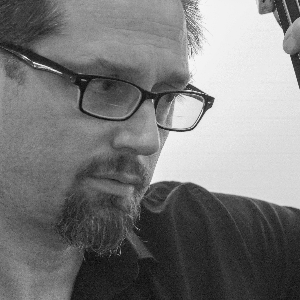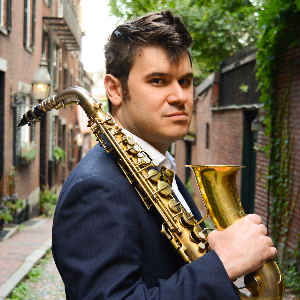In this course, you will build upon the essential elements of music theory and composition learned in Music Theory and Composition 1, allowing you to further your own musical language. You will expand your knowledge of major and minor key harmony and melody, in addition to scales, chords and drum grooves. This advancement in music theory will support you in all of your musical endeavors, making the application of advanced techniques easier to use within your own compositions.
After completing a strong review of Music Theory and Composition 1 topics, including major key, minor key, blues, an intro to modal interchange, rhythmic grooves. and traditional harmony concepts, the course will move into non-diatonic structures such as secondary dominants, a wider vocabulary of modal interchange chords, and a thorough look at composite minor in both contemporary and traditional settings. Compound meter will be explored and also applied to bass and drum grooves, along with higher-level rhythmic concepts such as odd meter and African polyrhythms. Music Theory and Composition 2 will give you the tools to develop melody writing, presented through contemporary and traditional views and Indian ragas, as well as the importance of song form, harmonic function, and phrasing as compositional techniques.
This music composition course will continue blending and exploring both traditional and contemporary harmony in order to give you a historical understanding of current topics.
On a weekly basis, you will be asked to engage with your classmates and instructor as you work your way through each lesson. To help you thoroughly experience and understand the material, you will be given activities and exercises to complete for each topic. There will also be weekly compositional assignments, giving you the opportunity to practice writing.
By the end of this course, you will be able to:
- Interpret and notate basic notational concepts of passing tones and upper/lower neighbor tones, melodic tension and release, escape tone, appoggiatura, and suspension
- Identify and write melodic elements such as intervallic variation, interval expansion, interval contraction, permutation, rhythmic variation, augmentation, and diminution
- Identify and use secondary dominants with modifying a major key progression and in different rhythmic positions within a harmonic phrase
- Identify and voice-lead secondary dominants with tensions along with the use of related II chords
- Identify and voice-lead secondary dominants and Neapolitan chord in traditional four-part SATB style
- Construct and use deceptive resolution as applied to primary and secondary dominants and modal interchange chords
- Identify and apply techniques in the minor key in contemporary and classical writing styles which include the use of composite minor, minor key chord scales, and minor key line clichés
- Notate and create rhythms and melodies based on compound and other meters
Syllabus
Lesson 1: Introductions and Level 1 Review
Lesson 2: Secondary Dominants and Chromatic Alterations
Lesson 3: Secondary Dominant Continued
Lesson 4: Deceptive Resolution - Primary and Secondary Dominants
Lesson 5: Minor Key 2
Lesson 6: Minor Key in Classical Music
Lesson 7: Modal Interchange Expanded
Lesson 8: Compound and Other Meter
Lesson 9: Bass and Drum Grooves in Compound and Other Meters
Lesson 10: Modulation
Lesson 11: Musical Composition Applied
Prerequisites and Course-Specific Requirements
Completion of Music Theory and Composition 1 or equivalent knowledge and experience is required. In addition:
- Ability to read notated music
- Ability to record MIDI in a Digital Audio Workstation (DAW)
- Ability to sync your compositions with various short video clips and export as MP4 file
Required Textbook(s)
Software Requirements
- DAW software such as GarageBand (Mac), Mixcraft (PC), Cakewalk by Bandlab (PC) etc.
Hardware Requirements
- MIDI keyboard highly recommended
- Audio interface highly recommended
- A printer so that you can print out music examples used in the course
- Scanner/phone camera to copy and export handwritten materials
- Manuscript paper with 8 or 9 staves per page
Instructors
Kari Juusela
Author
Kari Henrik Juusela is a Finnish-American composer, performer, and educator who presently serves as dean of the Professional Writing and Music Technology Division at Berklee College of Music in Boston, Massachusetts. In addition to writing music in styles ranging from pop to contemporary classical, he enjoys playing and recording the cello, bass, guitar, piano, table, and the Finnish Kantele.
His compositions have won numerous awards from such organizations as the Vienna State Opera, the International Trumpet Guild, the London Chamber Music Society, the Composer’s Guild, GASTA, and ASCAP. He has also won the International Red Stick Composition Competition, the American Songwriting Awards Contest, the San Francisco Art Song Competition, and the Aliénor Harpsichord Composition Contest. His works have been performed at many important venues including Carnegie and Tchaikovsky Hall by internationally acclaimed ensembles and performers, as well as by numerous rock, pop, and jazz groups. He is the author of over 20 college-level courses and is the author of the Berklee Contemporary Dictionary of Music.
Dr. Juusela holds degrees from the University of Maryland, Georgia State University, and Berklee College of Music. His music is published by ISG Publications, MuusJuus Music, and Yelton Rhodes Music, and is recorded on ERM, Beauport Classical, Lakeside Records, Capstone Records, and MuusJuus Music.

Suzanne Clark
Author
Suzanne M. Clark is an Associate Professor in the Harmony Department at Berklee College of Music and also teaches in the Songwriting Department and courses for Performance Health.
In 2010, Suzanne was the recipient of the Don Wilkins Curriculum Award, having authored five courses, including The Music of the Beatles, The Solo Careers of the Beatles, The Creative Flame, Integral Tai Chi, and Playing in the Key of Chi: Qigong for Musicians. She also teaches the Music of John Lennon. In 2014, Suzanne was featured in USA Today and on New England Cable News for the 50th Anniversary of the Beatles’ appearance on the Ed Sullivan Show. She also guest lectured on John Lennon for a Harvard University program.
Suzanne is a bassist, and throughout the years has played and recorded in a variety of genres including jazz, musical theater, world and contemporary music. She has performed and given clinics in New England, Pennsylvania, New York, and the Caribbean and Sweden. She was a guest lecturer at Northwood University’s Creativity Conference where she focused on musical creativity. Currently, Suzanne also teaches an online graduate course, Seminar in Creativity, which focuses on creative blocks of creative artists and is based on research and studies related to her MA in Critical and Creative Thinking.

Rick McLaughlin
Instructor
Rick McLaughlin’s work has been heard all over the world. A band leader, side-man, and member of the Grammy-nominated jazz group Either/Orchestra, he has performed on stages and in recording studios in places ranging from greater Boston, MA to Los Angeles, CA; from Barcelona, Spain to Rome, Italy; and from Phuket, Thailand to Addis Ababa, Ethiopia. Dozens of CDs feature Rick McLaughlin, including his own debut as a leader, Study of Light, which garnered critical acclaim (“…illuminates your aural universe with singleness and sincerity.” - Marcel Polgar, Double Bassist Magazine). He has shared the stage with a wide range of musicians, from jazz luminaries such as Don Byron, Steve Lacy, John Medeski, Danilo Perez, and John Zorn, to rock musicians Willie “Loco” Alexander, Morphine and Peter Wolf, and country music star Roger Miller. A frequent collaborator with musicians from all over the globe, McLaughlin has also performed with Ethiopia’s great singers Mahmoud Ahmed and Alemayhu Eshete, as well as the innovator behind Ethio-Jazz, Mulatu Astatke.
Although primarily known as a bassist, McLaughlin is a highly regarded teacher, most notably as Associate Professor of Harmony at Berklee College of Music, but formerly in a variety of faculty, administrative, and clinician positions at other music schools as well. These positions capitalize on the work McLaughlin has done in addition to his bass playing, as a published author, composer, and arranger.
McLaughlin graduated from the New England Conservatory of Music in Boston, MA with both B.M. and M.M. degrees, the latter he received with Academic Honors and Distinction in Performance. Former endorsements include AlterEGO instruments, Gallien-Krueger amplifiers, and Hohner Melodicas. For more information please visit Rickmclaughlin.com

Mark Zaleski
Instructor
Internationally touring musician, Mark Zaleski, has distinguished himself as a uniquely dynamic soloist, multi-instrumentalist, and band leader.He has performed with a diverse group of notable artists including Dave Brubeck, Christian McBride, Ian Anderson, Connie Francis, Mahmoud Ahmed, Rakalam Bob Moses, the Either/Orchestra, Jason Palmer, and Matt Savage. At the young age of 33, he has established faculty positions at Berklee College of Music, New England Conservatory of Music, and Longy School of Music at Bard College.
In 2017, Zaleski released his second record, “Days, Months, Years”, a record where Zaleski performs on alto saxophone, soprano saxophone, and double bass; one of the first of its kind in the jazz genre.
Additionally, Zaleski is active in many musical projects including the Omar Thomas Large Ensemble, The Brighton Beat, the Either/Orchestra, Nyota Road, a duo project with Glenn Zaleski, Chris Hersch and the Moonraiders, The Ayn Inserto Jazz Orchestra, Mehmet Sanlikol and WhatsNext, and plays bass in a popular Boston-area soul band he founded called Planet Radio.
Steven Kirby
Instructor
Guitarist, composer, educator Steven Kirby (“a guitarist of rippling technique and a poetic mind”- Downbeat) has built a reputation for performing exciting, melodic, lyrical and expressive jazz as well as being active as a performer in other contemporary styles. He has appeared on over 20 released recordings including three as a leader “Point Of Balance” and “North Light” (both on Challenge Records)—and “Illuminations” (on WCS records). “Illuminations” received Downbeat Magazine’s “Editors Pick” award. He has performed and/or recorded with many of today’ most respected contemporary musicians including Chris Potter, Mike Manieri (Steps Ahead), Joe Lovano, Steve Hunt, Allan Holdsworth, Matt Malley (of Counting Crows) and others. He has toured in the U.S., Canada, Caribbean, Europe, China and Africa.
Kirby’s music has been played on over 100 radio stations in the US and internationally including features on NPR’s “Here and Now”, “Jazz with Bob Parlocha” and “Eric in the Evening”.
His jazz compositions have won awards in the International Songwriting Competition, the Billboard Song Contest and Downbeat. He is a graduate of Berklee College of Music and has a Masters degree in Jazz Composition and Arranging from University of Massachusetts (Amherst). He is currently on the music faculty at 3 institutions of higher education: Berklee College of Music, Brandeis University, Wellesley College.